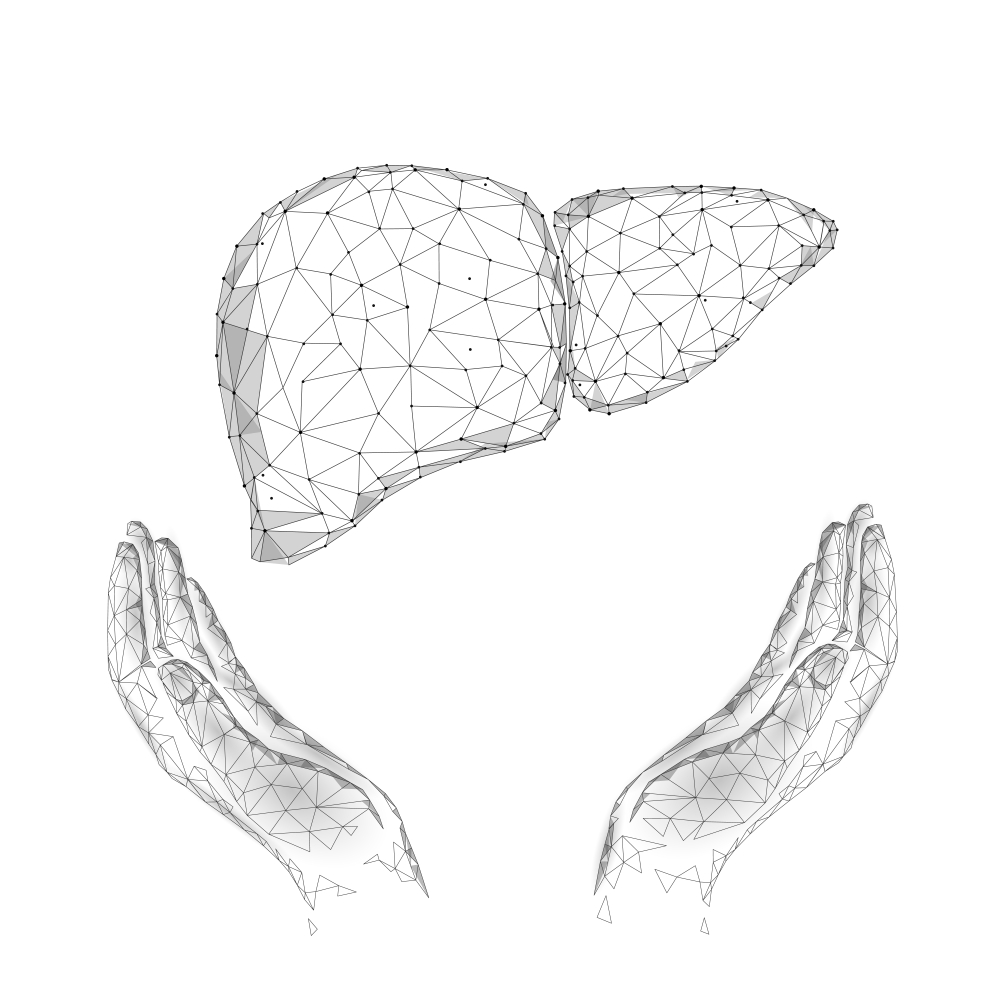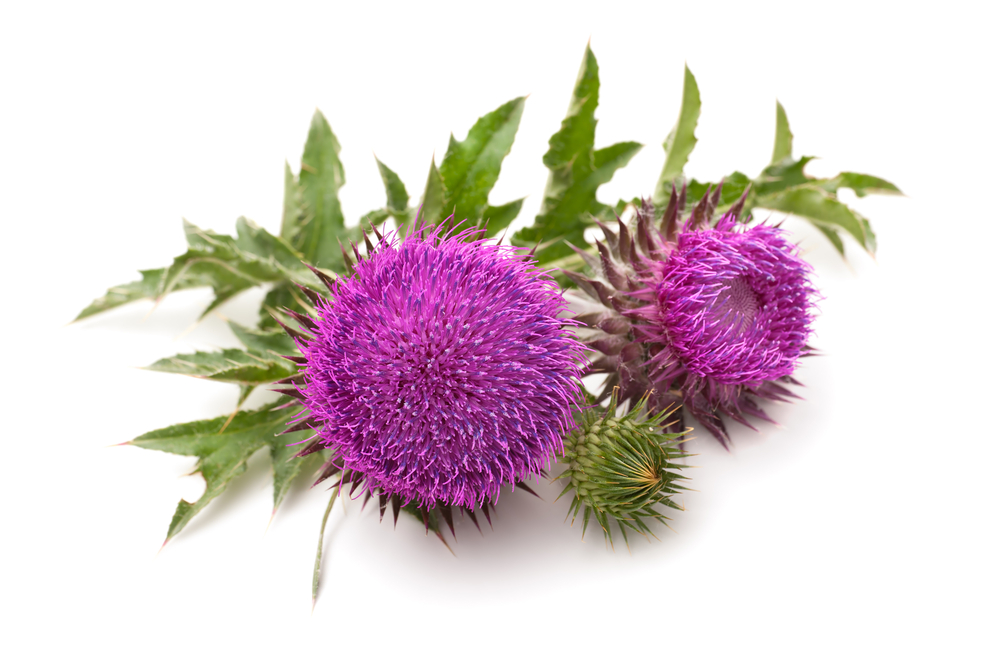
You may have heard of a heart healthy lifestyle or a gut-friendly eating regimen. But do you know what nutrients you need for liver health?
Where the heart has the spotlight in many therapeutic diets, the liver is like the security guard of the body that lays low and makes sure toxins don’t make it very far in your body. And if they do, the liver makes sure they exit as quickly as possible.
The liver protects you by fighting infections, cleans your blood of waste and toxins like drugs and alcohol, and transforms the food you eat into usable energy and nutrients, among other things.
Genetics, poor diet, or excessive use of drugs and alcohol can contribute to a diseased liver.
About liver disease
- One type of liver condition is cirrhosis, which causes scarring of the liver that can lead to liver failure.
- Another type of liver disease is fatty liver disease, which can be caused by alcohol abuse or other nonalcoholic factors like obesity, type 2 diabetes, or hepatitis, to name a few.
Maintaining a Healthy Liver
No matter what the cause of your liver disease, nutrition plays an important role in treatment. Eating a healthy diet low in sugar and salt and full of antioxidant-rich fruits and vegetables is vital to healing the body.
Also, limiting alcohol and drug use as well as maintaining a healthy weight is vital to give the liver a rest during recovery.
You should remember, though, to use these healthy behaviors as a supplemental treatment to be implemented along with the medications and treatments prescribed by your healthcare provider.
If you feel like you aren’t consuming enough nutrients through your diet alone, then certain liver-healthy supplements may be helpful. Such supplements contain antioxidants and other compounds that can provide your body with inflammation-fighting powers to help your liver heal.
And for those without liver disease, these supplements can help maintain the health of your liver to lower your risk of developing liver disease.
Useful Liver Health Supplements

Milk Thistle
Milk thistle, also known as Silybum marianum, is a flowering plant whose seeds hold many health benefits, including benefits for liver health. Silymarin is thought to be the component in milk thistle seeds and has been used historically to treat liver problems like cirrhosis, hepatitis, and gallbladder issues. These health benefits are thought to stem from the antioxidant flavonolignans found in silymarin.
Research shows that silymarin enhances hepatic glutathione and may contribute to the antioxidant defense of the liver. Not to mention that it has been found to increase protein synthesis in hepatocytes, or liver cells, by stimulating RNA polymerase I activity.
A 2017 report suggests that because of these properties, silymarin, along with lifestyle changes, may be a potential future treatment for non-alcoholic fatty liver disease (NAFLD).
Another study shows that humans with cirrhotic alcoholism treated with silymarin also saw health benefits like increased survival as compared with untreated controls.
Silymarin is an ideal choice for such treatments due to its antioxidant and anti-inflammatory properties that coincide with less side effects than other recommended treatments.
According to the National Institutes of Health, milk thistle has been tolerated well by most people, with the exception of some gastrointestinal side effects in some people. Also, if you are allergic to plants like ragweed, mums, marigold, or daisies, then you may also be allergic to milk thistle.
Finally, if you have diabetes, then you should be cautious when taking milk thistle since it could lower blood glucose levels. In this case, be sure to talk to your healthcare provider first before starting this supplement.
Selenium is an essential mineral that humans need to survive. One of its important health benefits pertains to liver health.
This mineral is present in many foods like Brazil nuts, brown rice, whole wheat, fish like tuna, halibut, and sardines, as well as other proteins like turkey, chicken, and eggs, among other foods.
However, not everyone may be eating enough of such foods in their diet if they don’t eat animal products, nuts, and/or wheat due to dietary restrictions or lack of access to such foods. Other people like those with HIV or undergoing dialysis may also be at risk for selenium deficiency. It’s in these situations that selenium supplements can provide much-needed health benefits.
Although research is still in its early stages regarding selenium and liver health, the results are promising. A 2018 animal study looked at the impact of selenium and zinc supplementation on rats with non-alcoholic fatty liver disease.
Study results show that those rats on a high-fat diet who received the combination supplement after disease progression had significantly lower fat accumulation, cholesterol, and serum triglycerides after 20 weeks of treatment.
Another similar study found that sodium selenite supplementation restored antioxidant activity and reduced levels of biochemical markers of liver dysfunction like bilirubin and ALT in cirrhotic rats.
More studies need to be done to confirm such findings in humans.
If you add selenium supplements to your daily regimen for liver health, then be sure to choose the right one for optimal results.
The National Institutes of Health reports that the human body absorbs more than 90-percent of selenium from selenomethionine-based supplements compared to only about 50-percent of selenium from selenite.
Most adults should consume about 40 to 70 milligrams of selenium each day to reap its full liver health benefits.
Coconut oil
Not only does coconut oil provide great flavor and healthy fat in baking and cooking, but it’s also beneficial to liver health. It’s important to note however that this isn’t just the coconut oil you buy in the grocery store.
The coconut oil that reaps the most health benefits is made up 100% MCTs, or medium-chain triglycerides. These health benefits stem from the fact that MCT oil’s shorter chemical structure is quickly absorbed and metabolized by the body. This in turn provides a feeling of fullness and is thought to prevent fat storage.
When it comes to liver health, research shows that by substituting saturated fats in the diet with MCT oil, one can lower their risk for non-alcoholic fatty liver disease.
Further animal studies show that MCT coconut oil, when combined with licorice extract, can prevent hyperlipidemia and fatty liver by reducing the synthesis of liver fat in the body.
However, other types of coconut oil also show potential to liver health as well. In fact, one 2018 animal study looked at the effect of virgin coconut oil (VCO) on liver disease. Study results show that VCO can improve HDL “good” cholesterol levels, reduce serum triglycerides, increase antioxidant activities, increase glutathione levels that support liver health, and can reduce the oxidative breakdown of lipids that can lead to liver injury.
Another study looked at the impact of VCO on rats and found similar results. Study results show that a diet supplemented with 10 to 15-percent of VCO for 5 weeks helped reduce total cholesterol, triglyceride levels, and LDL “bad” cholesterol along with helping increase HDL “good” cholesterol. Also, markers of liver inflammation were reduced, while markers of liver health were increased.
Although human studies are needed to confirm such findings, these results so far are very promising. Therefore, it may not hurt to add a little coconut oil to your daily regimen today to enhance your liver health.
However, if you are sensitive to fat, or have a chronic condition, be sure to talk with your healthcare provider before starting to take coconut oil.
When starting this oil, be sure to start with one teaspoon first, then gradually work your way up to about two tablespoons since some people may experience gastrointestinal distress when taking coconut oil.
N-acetyl-cysteine
N-acetyl-cysteine (NAC) is a widely used supplement that has great potential for liver health benefits. This compound is a precursor of L-cysteine, which leads to elevation of glutathione production in the body.
Glutathione is an antioxidant that research shows promise for helping recover oxidative stress-induced liver damages in alcoholic and non-alcoholic liver diseases. Therefore, N-acetyl-cysteine, which is an antioxidant itself, holds power to fight oxidative stress directly and indirectly through its glutathione boosting powers.
A 2018 study looked at NAC and its effect on liver health. Study results show that NAC significantly decreased levels of liver waste products like bile acids and bilirubin in the liver, all of them which are elevated with liver damage.
Along with its ability to recover decreased cholesterol in the CCI4 liver damaged cells, NAC exhibits protective effects for the liver.
Another 2018 study looked at the potential to help those with alcohol use disorder in the presence of liver disease. It was found that the liver health benefits of NAC in this population may stem from the fact that oxidative stress plays a key role in the development of both alcohol use disorder and liver disease.
Researchers of this study suggest that after future clinical trials on this subject matter, NAC may have potential to help treat those with alcohol use disorder that have liver disease.
N-acetyl-cysteine is safe, inexpensive, and although not found in natural sources, cysteine is found in chicken, turkey meats, garlic, yogurt, and eggs. Therefore, if your healthcare provider deems it safe for you to take, NAC can be a potent addition to your liver health regimen.
Apple Cider Vinegar
If you’ve read any wellness articles over the past few years, I’m sure you’ve heard of apple cider vinegar. Although it’s not a cure-all, some research has shown that it does possess liver health benefits.
Apple cider vinegar (ACV) is created when yeast digests the sugars in apples and converts them into alcohol. Then, it’s the bacteria known as acetobacter that turns the alcohol in the sour-flavored acetic acid.
The health benefits of ACV are thought to stem from the combination of yeast and bacteria that form during this fermentation process.
Although the liver health research is in its early stages, there have been promising results in animal studies.
One study looked at the effect of apple cider vinegar on rats with non-alcoholic fatty liver disease. Study results show that those rats given ACV for 22 weeks had reductions in serum triglyceride, cholesterol, liver enzymes, and glucose levels as compared with HFD group.
Another similar study found that rats fed ACV daily for over 28 weeks had improvements in lipid metabolism as well as decreased liver damage. These benefits are thought to stem from the anti-inflammatory effects of the antioxidant properties of ACV.
The recommended dosage of ACV is about two tablespoons a day, but you should start out on the lower end when starting this supplement.
Although its safe for most people to consume, it’s important to note that the acid in the vinegar may erode your tooth enamel with long-term use and could exacerbate cases of acid reflux. You may want to drink some water after consuming it and limit your dosage until you know how it affects you.
Also, if you have chronic kidney disease, your body may not be able to process the acid in ACV properly. Therefore, talk to your healthcare provider before consuming ACV.
Vitamin C
Vitamin C is a water-soluble vitamin best known for its immune health properties and fighting the common cold. However, this antioxidant is also an effective supplement for liver health.
Vitamin C is found in produce such as oranges, peppers, kiwifruit, strawberries, and broccoli, to name a few. However, if these foods are frequently consumed in your diet, then you may need a supplement to help you reach the recommended 75 to 90 milligrams a day for most adults.
Those with malabsorption issues may also be at risk for vitamin C deficiency.
When it comes to liver health, vitamin C shows promise for helping prevent fatty liver disease development. One study looked at the impact of vitamin C supplementation a group of adults.
Study results show that vitamin C intake helped reduce risk of developing fatty liver disease in adults, especially in males and the non-obese.
Furthermore, other research shows that there may be a possible link between vitamin C deficiency and fatty liver disease. Study results from controlled animal experiments show that vitamin C deficiency is linked to elevated liver fat levels, increased oxidative stress in the liver cells, as well as inflammation.
Research also shows that vitamin C treatment of liver disease-induced animals can reduce hepatic markers of oxidative stress.
Vitamin C has low toxicity and is tolerated well by most individuals. However, it may cause side effects such as diarrhea, nausea, or abdominal cramps in some people if consumed in excessive amounts.
In moderation, this potent antioxidant can be a top contender in your liver health supplement regimen.
Curcumin
As the active ingredient in the turmeric spice, curcumin is a potent antioxidant that has been used for medicinal purposes for thousands of years. Its health benefits are thought to stem from the compound’s anti-inflammatory properties. These properties make it an ideal liver health supplement.
In fact, research shows that curcumin has protective and therapeutic effects of oxidative associated liver diseases in several ways including:
- suppressing the proinflammatory cytokines, or immune system cells
- reducing levels of the products of oxidative lipid breakdown
- lowering levels of cellular responses to oxidative stress
Taking these properties into account, curcumin shows promise to be a free radical fighter in the protection of liver health.
Another study that supports this looked at the effects of curcumin on non-alcoholic fatty liver disease. Study results show that higher dosages of curcumin of about 1000 milligrams a day or more can help reduce blood liver enzymes levels in just eight weeks of treatment.
This shows that curcumin could have a positive effect on non-alcoholic fatty liver disease in these higher dosages.
Curcumin is generally considered safe for most people. However, if consumed in excessive amounts or for a long period of time, it could cause digestive symptoms. Therefore, if you want to add this supplement to your liver health regimen, start out taking smaller than recommended doses to see how your body responds.
Also, be sure to let your healthcare provider know you are thinking about taking curcumin to make sure it won’t interfere with any prescribed treatments you may already have.

Summary
Liver health is crucial to the overall health of your body. Without a properly functioning liver, the body can’t filter out the waste and toxins that can wreak havoc in your body. Therefore, it’s important to make sure that through your diet and lifestyle behaviors, you not only work to manage your weight, but look out for your liver’s well-being.
Several of the supplements mentioned above are all-natural substances that can be easily incorporated into a healthy diet. Not to mention that the antioxidants mentioned above like vitamin C and turmeric can be consumed through food sources if you prefer.
And these antioxidants have health benefits that extend way beyond the confines of the liver.
Anti-inflammatory and antioxidant nutrients can help reduce oxidative stress and related inflammation all over the body. This in turn, helps protect all your organs so you can lower your risk of many chronic inflammatory diseases like heart disease and type 2 diabetes.
Therefore, along with any medications or prescribed treatments you may be using for your health, supplements can help fill in the nutrient gaps.
Always be sure however to talk to your healthcare provider first before starting any new supplements to make sure there will be no medication interactions.

